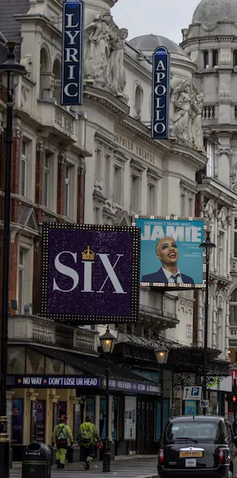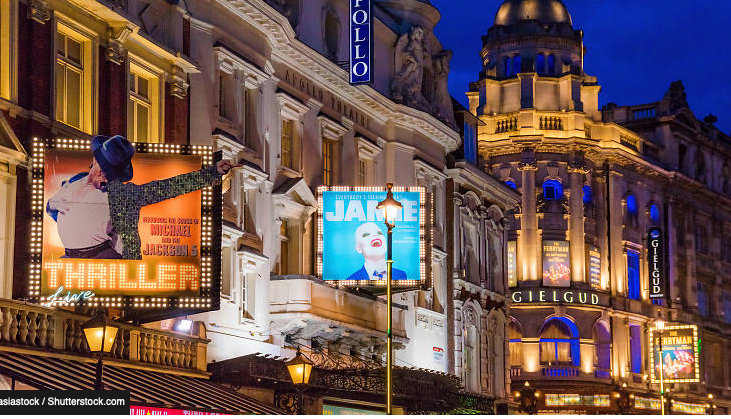Now that I’m getting into a rhythm on these daily columns, I’m going to try to introduce some regular features. And starting today, I’m planning on launching the week with column of disparate “diary” items — some fun, some not, that of stories that have made the news in the previous week.
Missing the scoop
Just as every film studio head mourns the projects they turned down that went on to be big successes for their rivals, so journalists live their lives regretting the scoops they missed out on. The Independent reported last week on a gutting one that Michael McCarthy, reporting at the time for the Mirror, missed out on in the 1970s, when he interviewed Andrew Lloyd Webber on a beach in Cannes during the film festival. As John Rentoul now tells it,
Lloyd Webber said he was working on a couple of things. One was a musical about the Beatles (which was never made), and the other – Lloyd Webber hesitated and said, “You’re going to think this is a bit strange” – was about TS Eliot’s cat poems. “Yes,” said McCarthy, doubtfully. “Tell me about the Beatles.”

Just as well that Beatles project never happened. What’s the point on trying to compete with Lennon/McCartney? As it is, several attempts have been made to theatricalise the Beatles catalogue in the years since, including Beatlemania (a 70s Broadway “rockumentary” that was featured some 29 songs to tell the chronological history of the Beatles via their music; when the New York Times pop critic John Rockwell reviewed it uninvited, as no opening night was set, he called it “an unobjectionable diversion” and went on to to note: “the mostly young audience on the night I saw had a wonderful time – which makes the producers nervousness about the critics’ reaction all the sadder. The Beatles had a remarkable faith in the way their own tastes could coincide with everyone else’s, from the most innocent to the most informed. The people behind Beatlemania aren’t so sure, and that’s as good a symbol for the death of the 60’s as anything else.”
In 2012, another touring revue of their songs — basically a live tribute band concert — fetched up at the West End’s Prince of Wales Theatre — the same stage, coincidentally, where the band themselves performed in the 1963 Royal Variety show, I reviewed it for The Stage, and ended my review stating, “It makes the West End hurtle ever closer to theme park oblivion. Let It Be? Let it not.”
But the best treatment of the Beatles catalogue I ever saw was Cirque du Soleil’s astonishing Vegas circus spectacle Love, playing at the Mirage Hotel. It’s an explosion of joy and exhilaration, with those great Beatles songs becoming the backing soundtrack to some stunning set pieces. Alas, it’s too big to tour; we’ll never see it at the Royal Albert Hall, where usually at this time of year the annual residency of Cirque du Soleil is the way most of us begin our reviewing years.
Brexit Blues
In another story that appeared online yesterday, also in The Independent it appears that the government is intent on sabotaging one of our primary and most successful exports to Europe: namely, our artists and the culture they produce. According to deputy political editor Rob Merrick,
“The UK rejected an offer of visa-free tours by musicians to EU countries, despite blaming Brussels for what the industry is calling the devastating blow of them requiring permits. A “standard” proposal to exempt performers from the huge cost and bureaucracy for 90 days was turned down, The Independent has been told – because the government is insisting on denying that to EU artists visiting this country.”
Further, according to the story,
“The government is arguing it “pushed for a more ambitious agreement which would have covered musicians and others, but our proposals were rejected by the EU”. In fact, countries as contrasting as the United States and Saudi Arabia enjoy a permit-free exemption for performers in their deals with the EU, which offers the arrangement as “standard”. “The UK refused to agree because they said they were ending freedom of movement. It is untrue to say they asked for something more ambitious,” the source said, adding “there has to be reciprocity”.
EU musicians now visiting the UK have to apply for visas for visits of over 30 days, as well as providing proof of savings and a sponsorship certificate from an event organiser. And, in the absence of a bloc-wide agreement, it is now up for each EU members state to decide whether to demand work visas.
Of course no one is going anywhere much right now — but were it not for COVID, these new restrictions would already be having a much bigger impact than they are. So let’s hope someone from the government addresses them now, before they do. Certainly some wise people have been warning of these risks for years: as composer Howard Goodall told The Sunday Times Culture’s Dan Cairns just yesterday,
“It has been obvious to me from the start of negotiations that because of the point-blank rejection of freedom of movement, the creative industries were going to be at car-park-basement level on the list of priorities. In the 45 years or so of my professional life the EU as a bloc has been a champion of cultural exchange, subsidy and artistic growth. That’s a fact, not an opinion. Ask any writer, composer, dancer, musician, film-maker, designer. It is a global powerhouse of collaboration. We are now out of that loop.”
Backstage Covid testing

Nimax, and its feisty chief executive and co-owner Nica Burns, was the first theatre chain to announce a West End return for all six of the theatres in their stable, an initiative that was soon stymied by the arrival of the latest lockdown.
And just as well, of course, given the current state of rampant COVID spread around the country and especially in London, where Sadiq Khan last week declared “a major incident”, with the infection rate exceeding 1,000 per 100,000 people, and the Office for National Statistics estimating that as many as one in 30 Londoners now has the virus. Khan told the BBC that figure is now as high as one in 20 in some parts of London, with more than 7,000 people in hospital in the capital – a 35% increase over the April peak of the pandemic last year. As Dr Samantha Batt-Rawden, a NHS senior intensive care registrar, tweeted last Friday afternoon,
We tried. We really tried. NHS staff pleaded with people that Christmas is not worth it. Now 1 in 30 people in London have COVID and ICUs are overwhelmed. My heart is broken ? @TheDA_UK @SadiqKhan @MayorofLondon https://t.co/PybDO6w67a
— Dr Samantha Batt-Rawden ? (@sbattrawden) January 8, 2021
But if or when it tails off and there’s any hope of trying to re-open the theatres again, Nimax are already ahead of the game: as the Telegraph reported last Friday,
“Nimax Theatres is planning to open a Covid testing hub for its six West End venues, for the use of performers and backstage staff.” The company ran a test pilot programme at the Palace Theatre on the Saturday before the theatres were forced back into lockdown in mid-December. Nica Burns was quoted saying that producers were “going to find it very hard to navigate all the rules, particularly around testing, so we set up a Covid testing hub in the Palace Theatre and we took on the responsibility of testing all the backstages – staff, producers and performers – at cost price. It was really successful. It’s difficult for producers to set that kind of thing up and organise it on a regular basis. It is a very hard thing to do as you need space. Also, if you use other testing areas, they are very busy and they are not going to prioritise a performer who is late – whereas with us, there were performers lining the stairs and if one was late it wouldn’t matter.”
Actors are already required to check in early — at the half, as it’s known, which is in fact 35 minutes ahead of the advertised curtain up time — but now they’ll be checking in, no doubt, for the Covid.

